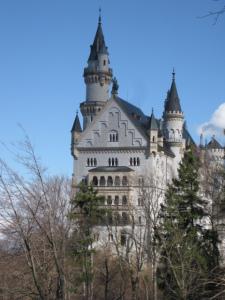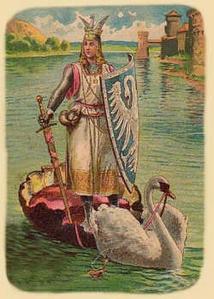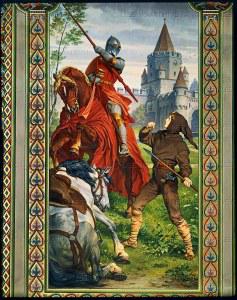
Neuschwanstein / Barbara Bosha
Neuschwanstein CastleKing Ludwig II of BavariaKing Ludwig was an ardent admirer and supporter of the birthday boy (born 22 May 1813, died 13 February 1883), Richard Wagner. Neuschwanstein literally means “New Swan Stone,” in honor of the title character from one of Wagner’s operas Lohengrin, also called “the Swan Knight.”

Lohengrin, the Swan Knight
Lohengrin, a character from German Arthurian literature, is a knight of the Holy Grail sent in a boat pulled by swans to rescue a maiden who can never ask his identity. In 1848 Richard Wagner adapted the medieval tale into his popular opera Lohengrin.
Neuschwanstein Castle was built in his honor and many rooms in the castle’s interior were inspired by Wagner’s characters. The third floor particularly reflects Ludwig’s admiration of Wagner’s operas. The Singers Hall, which occupies the entire fourth floor of Neuschwanstein also contains characters from Wagner’s operas. Ironically, Wagner never visited the castle– he died before it was completed.
Neuschwanstein Castle looks like a fairytale castle but is full of paradox. Built in the 19th century in Bavaria during a time when castles no longer had any strategic or defensive purpose, Neuschwanstein looks like something medieval. However, it was equipped inside with state-of-the-art technology at that time. On every floor were toilets with automatic flushing system as well as an air heating system for the entire castle.

Meeting between Parsifal and the King of Cumberland Mural in Singer's Hall, Neuschwanstein
In 2012, Neuschwanstein Castle will appear on a €2 commemorative coin. It was the prototype castle for Walt Disney’s Disneyworld (U.S.A.)

